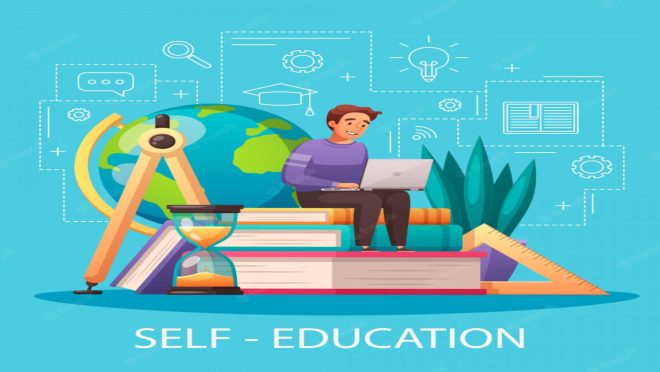Self-learning made easy: 10 tips for learning more quickly and effectively
Self-learning made easy: 10 tips for learning more quickly and effectively

To survive in today’s fiercely competitive market, studying a subject in school or university is no longer sufficient. One must constantly strive to expand his/her knowledge at any stage of life, even if no one or no institution is available to guide them
Around 46% of private employers in the country have difficulty filling jobs because of skill mismatches, a study by the Centre for Policy Dialogue (CPD) and the Bangladesh office of the Friedrich-Ebert-Stiftung (German social development organisation) found.
Recently, the Bangladesh Institute of Development Studies (BIDS) discovered that the country’s industrial sectors are experiencing a 30% skills gap.
As these findings were made public, fingers were pointed at the educational institutions for failing to provide students with quality education. Policymakers were also blamed for failing to implement a system that truly reflects the modern skill-based approach to learning.
While the criticisms are valid, and a more modern curriculum should be implemented as soon as possible, self-learning can also greatly assist our graduates in becoming industry-ready.
In fact, in today’s fast-paced world, where almost everyone has access to the internet, it is safe to say that studying a subject in school or university is no longer sufficient. To survive in this fiercely competitive market, one must constantly strive to expand his/her knowledge at any stage of life, even if no one or no institution is available to guide them.
Here are a few simple tips to make self-learning easier and more fruitful for you:
Take one step at a time
Rather than just reading, start by looking for a step-by-step guideline, such as a course outline from a credible source. This will help you set clear learning goals that are realistic and attainable, as well as, help you keep track of your learning process.
Choose your learning resources carefully
It goes without saying that if the source of your information is not up to date or accurate, all of your time, effort, and money will be wasted. So, you must always check the authenticity and accuracy of the materials you use to learn.
Don’t just learn, apply your knowledge
The best way to remember what you have learned is to use it regularly in real life. For example, if you are learning a new language, practice speaking with others or writing essays on various topics in that language.
Include other learners in the process
One of the best things about social media platforms is that you can connect with people from all over the world who share similar interests and motivation to learn. Find a few like-minded people and form a group to learn together.
There are numerous advantages in doing this, including obtaining access to materials you may not have known about previously, gaining fresh perspectives on different topics, and clarifying any confusion you may have about any topic.
Teach what you have learned to someone else
To teach someone else, you must make a concerted effort to comprehend and communicate the information more effectively. This allows you to practise more, which will help you develop a better understanding of the topic and remember more about it.
The NTL Institute for Applied Behavioral Science’s Learning Pyramid, which was created in the 1960s, states that, of all the methods, teaching others results in the highest rate of learning retention at 90%, followed by practice by doing (75%), discussion (50%), demonstration (30%), audiovisual (20%), reading (10%), and a lecture (5%).
Don’t just read, listen or watch, jot down key points
Taking notes keeps your mind active and involved, preventing feelings of drowsiness or distraction. It makes you pay attention and concentrate more. Actively participating in the topic by listening or reading and then summarising what you hear or read aids in understanding and remembering the information better.
Try visual note-taking
Visual note-taking is the method of recording information that is shared or experienced by combining text and visuals. People remember 80% of what they see, 10% of what they hear, and 20% of what they read. So, visual note-taking will undoubtedly help you remember information for a longer period.
Get creative with storing the information
You can try different methods to store the same information, such as making a mind map, writing potential counterarguments, and creating a story about the topic. It would be impossible to do this for everything you learn. However, practising this for key important concepts can help you remember much more of what you learn.
Adopt reflective learning
Reflection is effective because it increases the storage and retrievability of your experiences. It allows learners to improve their critical thinking skills and future performance by reflecting on what they have learned. A study conducted by researchers from Harvard Business School, Bocconi University, and the University of North Carolina found that call centre employees who spent 15 minutes at the end of the day reflecting on the lessons learned for the day performed 23% better than their peers after only ten days.
A winner is a dreamer who never gives up
One of the most common issues that self-learners face is that they begin but quickly abandon their efforts due to a lack of a system to hold them accountable or because they lack enough motivation. According to data collected by EdX, only six out of every 100 people who enrol in a course complete it. So, you must do whatever it takes to keep going until you finish what you’ve started.
Disclaimer: This article first appeared on TBS on 06 October 2022 and can be found at Self-Learning Made Easy


